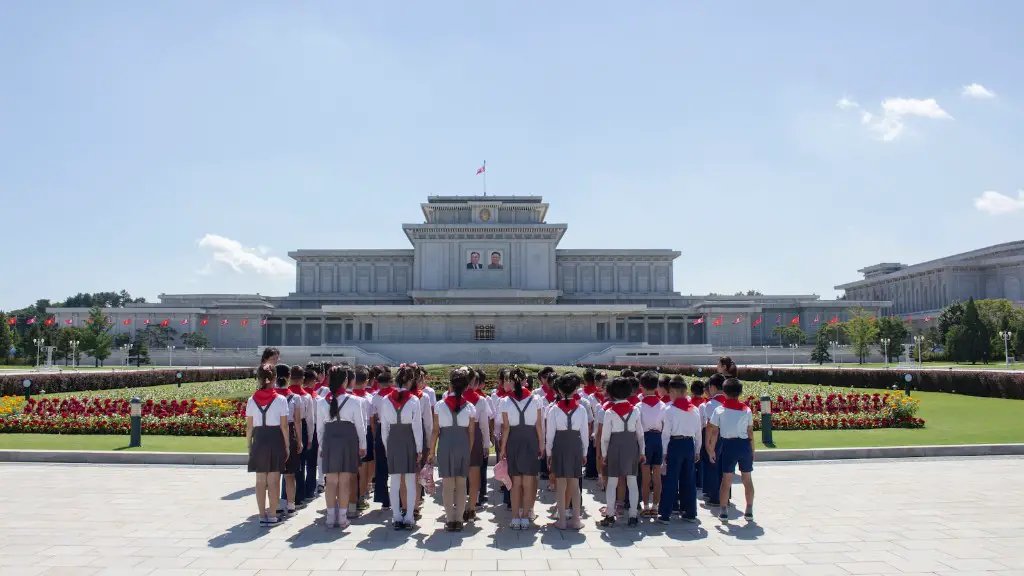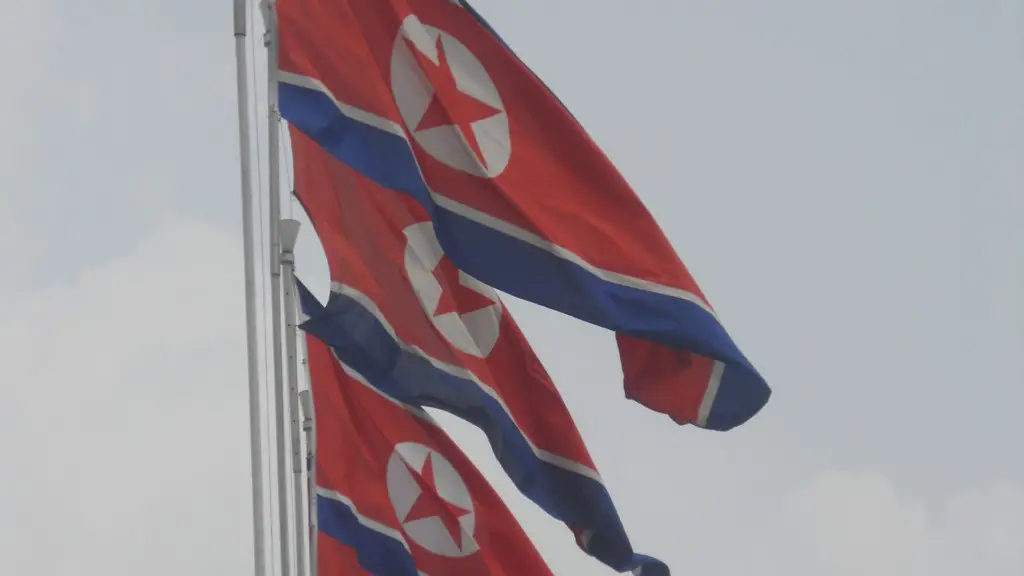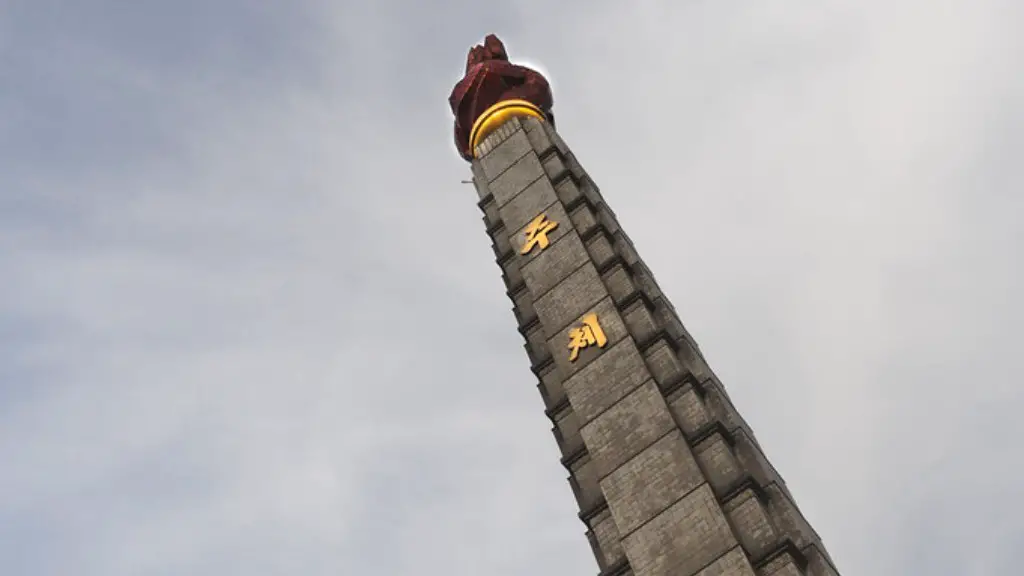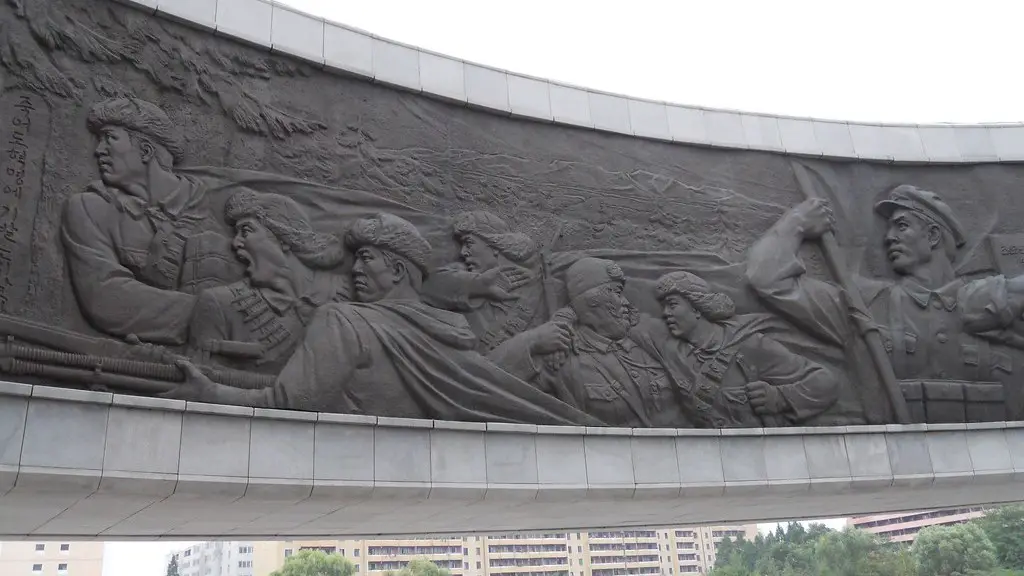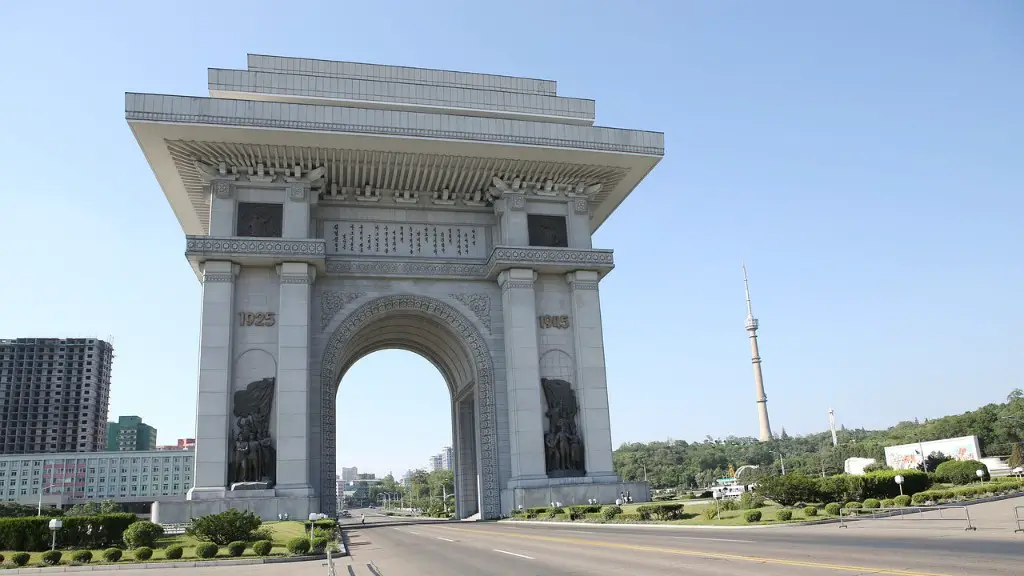Otto Warmbier was an American college student who traveled to North Korea in 2016 on a tour and was wrongfully arrested and detained. He was accused of taking a propaganda poster as a souvenir and was convicted of subversion, given a lengthy sentence and then sent back to the U.S. in a vegetative state. Warmbier died shortly after his arrival, sparking an outcry in the United States of North Korea’s actions. Since then, many questions remain unanswered. What did North Korea do to Warmbier? How did they treat him while he was detained? Let’s dig deeper into the details.
When Warmbier arrived in North Korea in 2016, he had no knowledge of the arrest awaiting him. According to reports, he was arrested at the airport for taking a propaganda poster from the hotel he was staying in and charged with hostile acts towards the government. After a rushed trial in March 2016, Otto Warmbier was sentenced to 15 years of hard labor for his alleged crime. During his imprisonment, Warmbier was reported to have been confined to a cell by himself and denied access to the outdoors or any visits by a physician. He was allegedly only allowed to shower twice a week and was given limited food and water. It is also reported that Warmbier was subject to torture while he was detained – details of what happened are still unclear.
Full details of what North Korea did to Otto Warmbier may never be known. However, what we do know about his suffering has raised a number of questions about the regime’s treatment of prisoners and their disregard for human rights. Human rights organizations have called for a full investigation into Warmbier’s death and for sanctions to be imposed on North Korea for its egregious acts.
Experts believe that North Korea’s treatment of Warmbier was a form of hostage diplomacy, an attempt to deter the U.S. from carrying out military action against their regime. While this may be true, it nonetheless serves as a stark reminder of the regime’s disregard for human rights and their willingness to use extreme measures to protect their own interests.
In the wake of Warmbier’s death, North Korea has been heavily condemned by international organizations including the United Nations and the European Union. The regime has responded by denying any responsibility and rejecting any calls for an investigation into the matter.
In spite of the regime’s refusal to cooperate, many believe that justice will eventually be served for Warmbier’s family. In the meantime, Warmbier’s death has prompted calls for stronger diplomatic relations between the U.S. and North Korea in hopes of improving the situation for prisoners and protecting human rights.
The Aftermath
Since the passing of Otto Warmbier, his family members have come forward to speak out and share their side of the story. They have highlighted the extreme cruelty that their beloved family member experienced while detained in North Korea and the lack of support they received from the U.S. government. The family’s public outcry has prompted more dialogue concerning North Korea’s human rights record and the urgent need to put an end to the country’s cruel treatment of dissidents, detainees and prisoners.
In the weeks and months following Warmbier’s death, discussion of North Korea has been at the forefront of global discourse. Talks regarding North Korean denuclearization and diplomatic relations with the U.S. and other countries have become increasingly common. It is clear that the death of Otto Warmbier has had an immense impact on the U.S.-North Korean relationship, undoubtedly strengthening efforts to rewrite the trajectory of their dealings.
International pressure is mounting for officials to take action and to truly address the human rights crisis that is taking place in North Korea. Change cannot come soon enough for the individuals whose lives are at risk due to the regime’s harsh treatment and totalitarian rule. It is all the more important, then, to remember, honor and seek justice for the life of Otto Warmbier.
The Impact on Tourism
Otto Warmbier’s death has caused a drastic decrease in the number of tourists who visit North Korea. As a result of Otto’s case, as well as the general lack of safety and human rights violations in the country, travel companies have had to either cancel or severely limit their trips to the nation. This has had negative economic consequences for North Korea and has made it difficult for foreigners to visit the country if they so choose.
What is more, Warmbier’s death has damagingly impacted the perception of North Korea in the eyes of the international community. His story and the accounts of subsequent travelers have made it clear that the nation’s totalitarian ruling and disregard for human rights is a serious problem and cannot be ignored. This has made it more difficult for North Korea to improve its international standing and given other countries more incentive to impose sanctions on the nation.
Though it is difficult to fully understand the severity of Warmbier’s situation, it is clear that his death has initiated much-needed reforms regarding North Koreans relations and the nation’s human rights abuses. The death of Otto Warmbier serves as a reminder of our responsibility as global citizens to take a stand for freedom, peace and justice.
The Larger Picture
Otto Warmbier’s case is sadly not unique. Many other Americans and people from other countries have been wrongfully arrested in North Korea over the years, and stories of human rights abuses are all too common in the country. In response, a number of organizations have been established in order to protect and advocate for these individuals and ensure their safety.
Though the international community has reacted to Warmbier’s death, further action needs to be taken in order to bring change to North Korea and improve its overall human rights record. By making sure that all cases are thoroughly investigated, individuals can be held accountable for any wrong doings. This is essential in order to create a lasting change in the country, and to ensure that no further cases of human rights abuse can occur.
The death of Otto Warmbier serves as a reminder of the importance of standing up for human rights and for the freedom of individuals all over the world. It is our duty to pay tribute to his life and to take necessary actions to ensure that a similar fate never meets another innocent person.
The Search For Justice
Otto Warmbier’s family is now pursuing a wrongful death suit against North Korea. The suit, filed in April 2019 in U.S. District Court in Washington, accuses the North Koreans of torture, hostage taking and other inhumane treatment, and alleges that North Korea is liable for the death of the 22-year-old college student.
The Warmbier family’s lawsuit is just the latest attempt to hold North Korea accountable for its alleged wrong doings. Though many people have praised the family for their efforts, it remains unclear whether their lawsuit will result in any tangible change. Recent attempts by the U.S. government to bring North Korea to the table have largely been unsuccessful, and the legal system in the United States is often difficult and lengthy.
What is certain, however, is that by taking a stand and seeking justice, Warmbier’s family has taken a step towards ending the impunity of North Korea and holding them accountable for his death and the inhumane treatment he suffered while in the nation’s custody. This will be seen as a courageous effort to bring light to the human rights abuses taking place in North Korea, and to put an end to them forever.
Conclusion
It is impossible to fully understand the tragedy of Otto Warmbier’s death, just as it is impossible to forget it. His story has been an eye-opening experience for people all over the world, and has prompted an urgent call to action in order to bring an end to North Korea’s gross disregard for basic human rights. The Warmbier family’s valiant search for justice is a testament to the strength and resilience of the human spirit, and serves as a reminder of our collective responsibility to the fight for freedom and the protection of innocent lives.
